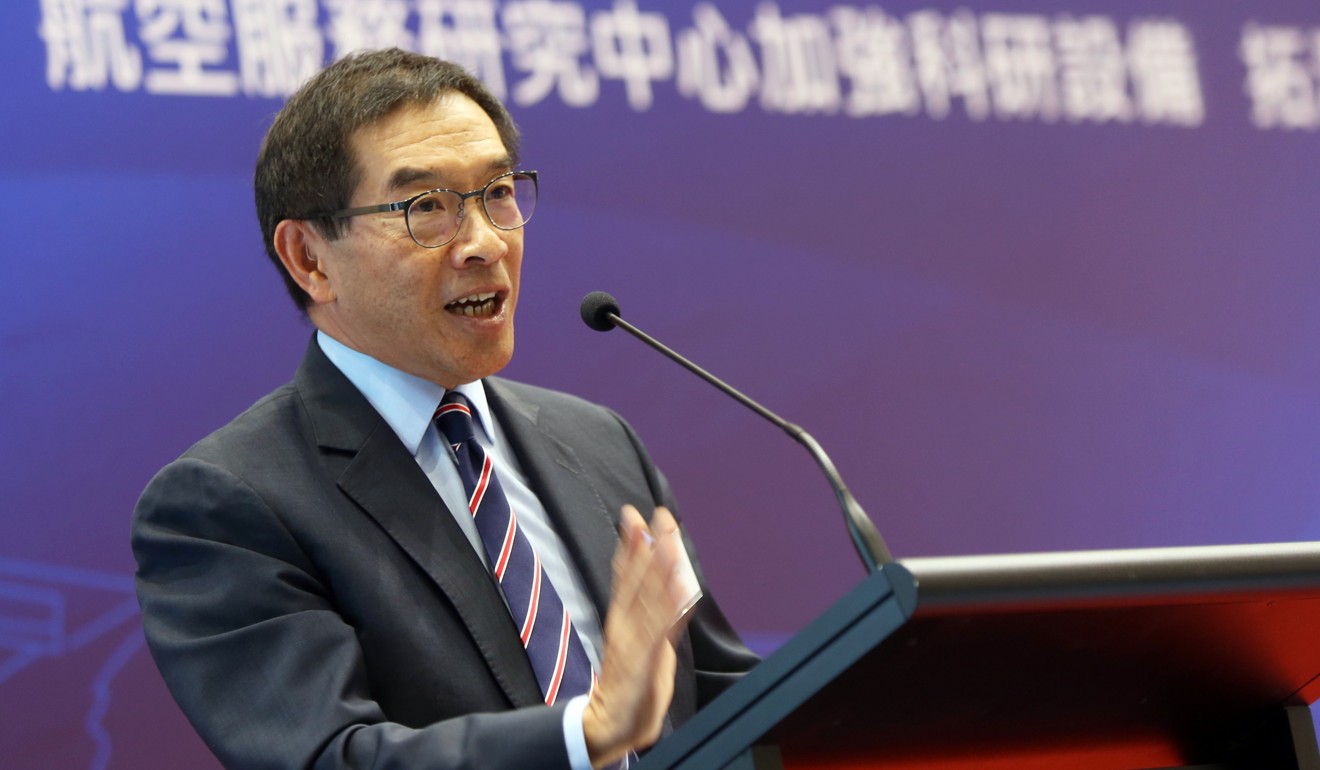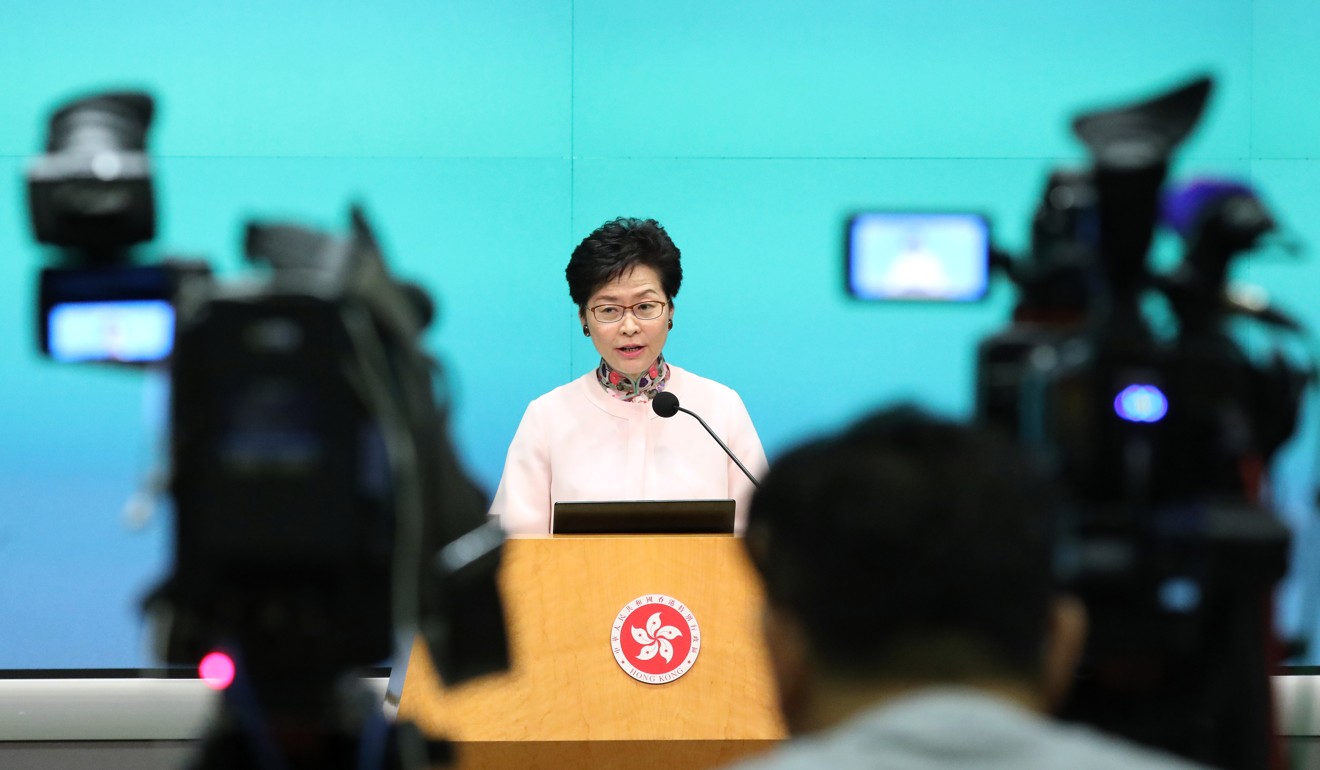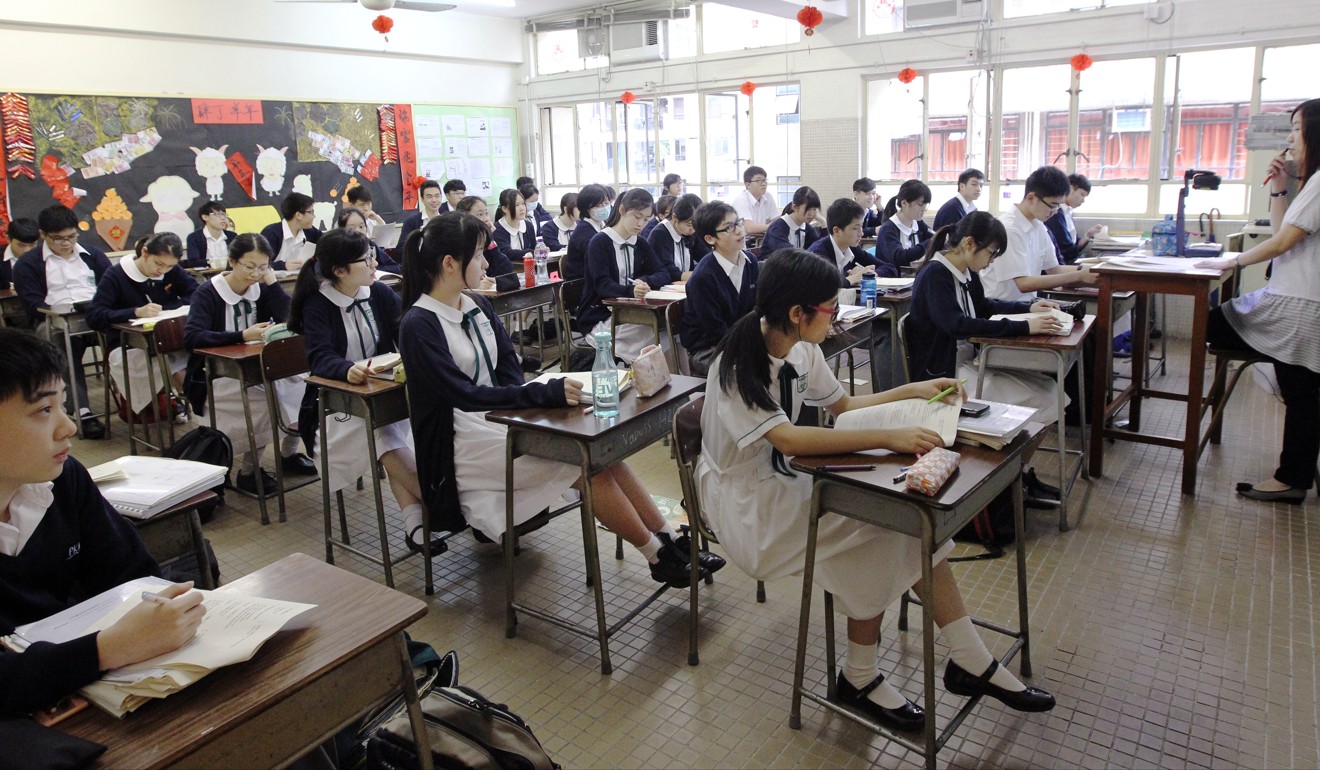Universities among the big winners as Hong Kong leader Carrie Lam announces plans to inject HK$20 billion into research fund to boost innovation
Showing her commitment to education, the chief executive also committed a further HK$1.3 billion to recurrent expenditure for the sector

Hong Kong universities have taken a big piece of the pie among all other education sectors as the government plans to inject HK$20 billion (US$2.56 billion) into a research endowment fund to boost innovation.
Chief Executive Carrie Lam Cheng Yuet-ngor announced in her policy address on Wednesday the addition to the Research Endowment Fund – one of the city’s main sources for competitive research funding – with the aim of doubling such resources for institutions.
Lam said she decided to accept in full recommendations made by Professor Tsui Lap-chee, chairman of a task force reviewing research funding and policies. The task force completed its review and submitted a report last month.
Life science professor Lam Hon-ming said the HK$20 billion boost was “better than expected”, considering the government had promised no less than HK$10 billion as funding for university research in last year’s policy address for disbursement upon completion of the task force’s review.
While there was still some distance between Hong Kong and places like mainland China and Singapore in terms of expenditure on research and development, he said the injection was a positive move, adding it was necessary for researchers to show some results for society.
The injection takes the fund, of which the bulk of investment income is used to fund research, to HK$46 billion.
A government source said that with a current investment return rate of around 4 per cent, the HK$20 billion would be able to generate HK$800 million in a year’s time.
That would meet the task force’s recommendation to double the overall competitive research funding by the Research Grants Council (RGC) from HK$1 billion to HK$2 billion per year. He also said the addition could be made once the Legislative Council approved it.

The HK$20 billion boost was welcomed by the Heads of Universities Committee, representing the city’s eight public universities, as well as Carlson Tong, chairman of the University Grants Committee (UGC), which allocates funding to public universities.
Also adopted from the report was the introduction of a new research matching grant scheme for local degree-awarding institutions. Carrie Lam said HK$3 billion would be committed for three years for the government to match donations from private companies for research-related purposes.
The source said with the scheme and the Research Endowment Fund boost, overall government competitive research funding could double from the current HK$2 billion to HK$4 billion a year.
Researchers could also benefit from a proposal, costing HK$190 million a year, for three new regular fellowship schemes, for postdoctoral fellows and researchers at associate professor and professor level.
The source said there would be 50 places for postdoctoral fellows, 10 for associate professors and 10 to 15 for professors. For the associate professors and professors, these fellowships could free them up from teaching to concentrate on research, he said.
Showing her commitment to education, Lam committed a further HK$1.3 billion to recurrent expenditure for the sector, on top of HK$5 billion she announced before taking office last year and an additional HK$2 billion from this year’s budget.
Previously she had only detailed the plans for how HK$3.6 billion would be used.

On Wednesday, she explained how the overall unallocated HK$4.7 billion would be spent, including using HK$1.5 billion in the 2019/20 school year to ensure all public primary and secondary school teachers were given a graduate post within two years. Most primary and secondary teachers have degrees, but many need to take on non-graduate posts with lower pay.
Another government source said the number of graduate teacher posts would be increased by around 9,400 and that there were only about 900 teachers without degrees.

Education sector lawmaker Ip Kin-yuen welcomed the move, which the sector had sought for years.
Lam also allocated HK$570 million a year for schools to use for administrative support starting in the 2019/20 school year; HK$900 million for a new recurrent life-wide learning grant for schools to organise more out-of-classroom experiential learning activities, and HK$800 million a year for support for children with special education needs.